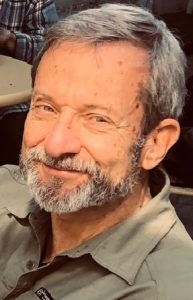 |
Jörn Kroll (USA) — attended the University of Göttingen (Germany) and the University of California, Berkeley (Ph.D.). Member: American Philosophical Practitioners Association; Karl Jaspers Society of North America; American Philosophical Association; Institute of Noetic Sciences; Scientific and Medical Network (London). Independent Scholar.
Building Advanced Levels of Human Development: Esoteric Philosophy and the Major Cultural Role of Russia in the Writings of Alice A. Bailey From the earliest beginnings of Western philosophy, a spiritual dimension has always been an important and rejuvenating driving force. Yet such a comprehensive perspective is almost absent in contemporary Western philosophy. The once venerated “Love of Wisdom” is hardly to be found in academia. My presentation intends to introduce the audience to the writings of Alice A. Bailey, which were written during the 30-year period between 1919 and 1949. Her 24 books present a vast cosmology, a sophisticated and detailed psychology, a subtle-body physiology along energetic lines, perennial wisdom blended with contemporary science, and ample guidance for right human relations. Additionally, her works give profound insights into the nature of consciousness as well as to physical substance or matter. The main focus of my presentation will be on the expansion and refinement of our perception, intuition, and thinking as a result of esoteric studies and various forms of spiritual exercise. This approach toward the growth of practical wisdom is based on the truism that our perception, thinking, emotional capacities, and human relations are only as effective and beneficial as our somatic, psychological, and mental constitution admits. The range and quality of our sense perception, thinking, and human relations are directly proportional to the degree of development of our individual constitution which is the sum total of our dense and subtle physiology. Therefore, we cannot merely reason our way out of our self-made cage of rudimentary rationality. We must, instead, refine and expand the inherent powers of our human body itself so that it can be a suitable vessel for our soul and spirit. This task is both an enormous challenge and a great opportunity for the humanities (holistic education). The works of Bailey contain also astute statements about the contributions of different countries to the welfare of humanity. My presentation will close with a brief report on the specific contribution of Russia to the evolution of human civilization. Russia, “that great nation (a synthesis of East and West)” is portrayed as the harbinger of a new world consciousness. “Russia is the home of a germinating revelation of great spiritual value and group significance—a revelation for all mankind.” These and similar statements about Russia’s major international contribution—fully flourishing in the future—are closely linked to the main subject of my pesentation. |
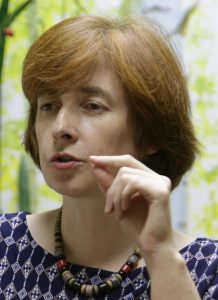 |
Svetlana Dinaburg (Russia) – Senior Lecturer, Department of Philosophy and Law, Perm National Research Polytechnic University, body-oriented psychotherapist. Modern studies of trauma as applied to philosophical practice (Lecture) Today we are witnessing a meeting of phenomena that somehow influence events in the field of philosophical practice – the discourse of “self-care” and modern research on trauma. Trauma studies were recognized as one of the most dynamic sections of the humanities in the last decade of the 20th century. In recent years, they have become an important part of the intellectual landscape, not only due to obvious relevance, as well as integrative potential, but the ability to “reformat” old concepts and relationships. Thus, a clear distinction within the framework of the psychotherapeutic paradigm of the suffering of a neurotic and a normal person was problematized in an increasingly wider context, and the concept of trauma came to be understood not only as an event related to the individual psyche, but also as social phenomena of historical, cultural and collective trauma. Accordingly, if philosophers-practitioners, some time ago, consciously distanced themselves from any traumatic subject, outlining their area as “problems of an ordinary person”, “deep needs”, “existential crises / anxieties / perceptions” or “philosophical diseases that cannot be cured, but can only live through”, then today no one can avoid being included in the context of injury and / or remain unaffected. It is believed that trauma studies continue the tradition of studying culture in the categories of “philosophy of insanity.” At the extreme level, a person experiences traumatic consequences (from world disasters to everyday domestic violence) not only passively, but also consciously leaving the refuge of well-being and compassion for others. At the level of imperfection – closeness, lack of freedom and the pressure of social relations today produce an invariable traumatic state of things. Finally, at the level of inevitability, the initially traumatic nature of the culture (J. Lacan) or the principal trauma of the subject (R. Burnet) is conceptualized. Thereby, new tasks arise as aspects of modern “self-care”: clarifying the concept of trauma, understanding the positive and negative aspects of normalizing trauma and developing methods for safe work with trauma. |
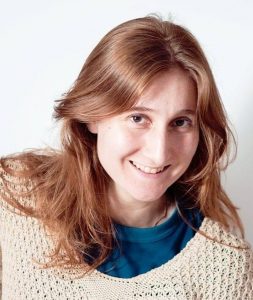 |
Anastasia Avdieva (Russia) is a teacher of practical philosophy and critical thinking for children and adults in Russia and abroad, the author of a number of programs for the development of critical and creative thinking, a certified teacher of philosophy, founder of the Children’s Philosophical Club (Moscow). The use of practical philosophy tools for the development of creative and critical thinking in children (workshop) Philosophical practice – this recently emerged trend in modern education has already won many followers around the world. Philosophical practice develops in children the skills of analysis, reasoning, posing questions, reasoned debate, the ability to listen and understand others. In a game adapted form, children get the opportunity to reason on vital topics, learn to comprehend and be aware of their values. “Philosophy for children” is a qualitative development within the framework of the “Thinking of the 21st Century” concept: clarity, structural, sharpness, flexibility, innovation, and depth. The master class will be interesting for both experienced philosophers and practitioners, and those who are just planning to work with children, as well as for all teachers who are in search of methods for developing creative and critical thinking of children. The structure of the master class: 1) acquaintance with the origins of the method (if necessary, if the audience will be dominated by novice p4c practices); 2) the practical part is an interactive exercise with active facilitation (interpretation, building a dialogue, argumentation, work with hierarchy); 3) analysis of experience. Methodological comments: demonstration of the diversity of materials (stimuli) and areas of work, opportunities of integration with various general subjects, presentation of the work of the Children’s Philosophical Club (Moscow). |
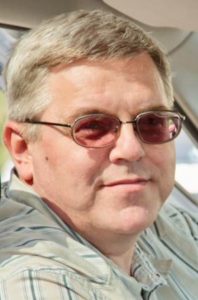 |
Sergey Ladushkin (Russia) – PhD in Philosophy, Associate Professor of St. Petersburg State University of the Ministry of Internal Affairs of Russia, he is working as a practical philosopher for five years, advising individuals and business clients on issues of systemic formulation and resolution of meaning problems, he is developing an author’s project co-analytics as variety of philosophical partnership, joint passage through meaning problem zones in personal and business life. Philosophical counseling as a business: experience of co-analytics (Presentation) Humanitarian practice is becoming sustainable and capable of self-development, when it gains a solid economic foundation. At the stage of formation, each new humanitarian technology exists only thanks to the efforts of individual enthusiasts, grant support, donations from sponsors and funds, but ultimately the question of creating an adequate financial and economic base for it is a matter of survival as well as of the technology itself and the authors promoting it. In connection with this, the task arises of finding suitable business models for various forms of modern philosophical practices. We consider this task as an example of co-analytics as one of the varieties of philosophical partnership. Co-analytics is a practice of medium and long-term partnership between a philosopher-practitioner and his client regarding the solution of the problems in personal or business life. At the same time, the problem in co-analytics is understood not only as an obstacle that needs to be overcome and eliminated, but as a space of self-development, being in which gives a person a chance to discover new useful meanings for him and build on their basis a more effective model of his own behavior in a changing the world. Co-analytical partnership becomes possible only with the correct distribution of communication roles between the philosopher-practitioner and his client, when each of the participants in the partnership realizes its role in it, sees what it gives to the other, and what it receives. The philosopher-practitioner in this partnership acts for his client as an interested accomplice in passing through the meaning problem field together with the client; he turns out to be both a guide and an assistant in the client’s independent overcoming of his own meaning difficulties. We consider this role-based positioning as a methodological basis for the proper building of business partnerships in philosophical practice as a business process. |
 |
Hoyeong Lee (South Korea) – graduate student of Kangwon National University, he has worked as a graduate researcher for Brain Korea 21 Plus Research (A program for training specialists for Philosophical Counseling and Therapy) during 2016-2019 and currently working as assistant secretary of the Korean Society of Philosophical Practice. Application of Pascal’s wager as a philosophical antidote (Presentation) In the 6steps of Elliot Cohen’s Logic-Based Therapy (LBT), the fifth step is “find an Uplifting Philosophy that promotes the Guiding Virtue”. I will introduce “Pascal’s wager” as a clinical case that can be used as a philosophical antidote at this stage. The Christian counselee was suffering from mental problems with the doctrine of ‘limited salvation’ that is, “non-Christian going to hell” because of the death of her husband, who was a non-Christian. For those who suffer from this problem, Catholic theology claims to be overcome by “purgatory” doctrine, while Moltmann theology claims to be overcome by universal salvation. However, the counselee did not accept purgatory doctrine and universal salvation theory because of differences in beliefs. In this regard, I thought it was appropriate to apply the “Pascal’s wager” of Pensées is a way not only to keep the counselee’s beliefs but also to reduce mental pain. I just helped her by applying Pascal’s wager, a kind of decision theory. I changed this wager argument into dividing it into a case of maintaining and giving up religious beliefs, respectively. Accordingly, I led her to explore the highest likelihood that her husband’s hope for salvation would be fulfilled. Since the four options made up in this wager argument were structured through her acceptable religious presuppositions, she also readily accepted this argument. This is useful because Pascal’s wager can be used to induce an intuitive response to the counselee without having to explain complicated and difficult doctrines. Indeed, the counselee was able to gain comfort from Pascal’s wager argument. |
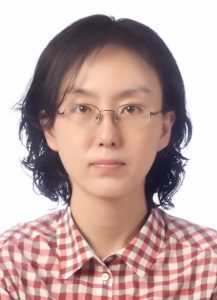 |
Seoyeon Hur (South Korea) – PhD student at Kangwon National University Unconsciousness in Freud and Unauthenticity in Heidegger (Presentation) In this presentation, I aim to show the unconsciousness in Freud can be understood as the Unauthenticity in Heidegger. Unconsciousness is a key concept in Freud’s early thought and is considered a source of psychopathic phenomena. But Swiss psychiatrist Boss criticizes Freud’s concept of unconsciousness as a limit to natural-scientific thinking separating subject and object. My attempt to understand the unconsciousness based on Heidegger’s philosophy will open hopefully the way for the widespread use of Heidegger’s concept of Unauthenticity in philosophical counseling. The discussion proceeds in four steps as follows. 1) Freud’s psychoanalysis presupposes the concept of truth as unconcealedness. In other words, human beings are not the union of the isolated mind and body as in natural science but the Dasein, who is disclosed to the world and gives meaning to other beings. 2) Freud’s meaning is not related to causality, but to the temporality of Dasein. Because the ‘understanding’, through that the Dasein thrown by the past throws itself on the future possibilities, is the ‘giving-meaning’. 3) Understanding of Dasein also indicates the freedom of the Dasein. For the Dasein is always freely present as a possibility. Here the concepts of authenticity and unauthenticity are explained as the possibilities of Dasein. 4) Freud’s language is not any symbol attached to meaning. It is a way of unconcealing a concealed being in oblivion or suppression. The debate eventually converges on the unconcealedness and concealdeness, the authenticity and unauthenticity of the Dasein. It will be revealed here that Freud’s unconsciousness concept can be explained by Heidegger’s unauthenticity concept. |
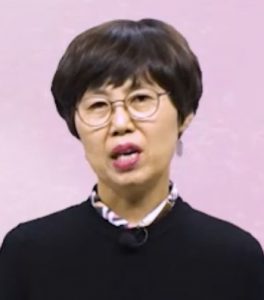 |
Sun-Hye Kim (South Korea) – PhD, Doctor of Philosophy, Free University Berlin (Germany), Professor in Department of Philosophy of Kangwon National University, Supervisor for Philosophical Counseling of Korean Society of Philosophical Practice, Director of Korean Nietzsche-Society. Nietzsche’s the Self as a creative Midwife and ‘Self-Praxis’ (Presentation) This presentation seeks to take note of the human concept based on reason and body as the new subject of philosophy practice in order to expand the rational-centered subject of philosophy practice. To this end, I would like to present the concept of ‘the self’ (das Selbst) that penetrates the human concepts of Nietzsche philosophy such as body, Dionysus, Overman, Zarathustra, etc. The extent to which the two pillars of philosophical practice, the philosophical midwife and the philosophical mother, are expanded is correlated with the extent to which philosophical practice. Therefore, research on extended human beings is needed to extend philosophical practice beyond critical and understanding dimensions to productive and creative dimensions. This presentation presents a philosophical midwifery that promotes this extended human. In particular, I would like to introduce a case of self-praxis, which applies the concept of the self to philosophical practice, which can help the philosophical mother expand herself. |
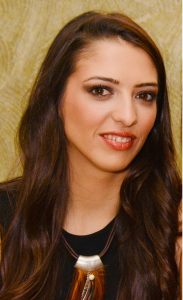 |
Tea Radovic (Serbia) – Bachelor of Psychology, Master studies of human resources, psychosocial consultant, entrepreneur. Superposition and Entanglement of Quantum Personality (Interactive presentation in the TED style) A holistic approach to comprehending the human psyche as a substrate for the interplay between the physical and spiritual implies that a certain part of the personality functions at the level of atomic and subatomic particles, which are as such subject to the fundamental principles of quantum mechanics. The two basic constructs of quantum physics, according to which particles of matter exhibit their basic behavioral principles, are Superposition and Quantum Entanglement. The initial premise of the Quantum Personality, which I intend to assert, is that certain personality instances also operate on the levels of subatomic and atomic particles, i.e. to utilize the principles of the quantum world through emotional, cognitive and behavioral patterns of expression of the individual persona. Superposition assumes that each particle is found in infinitely different states at the same time, for as long as the secondary party through its observation does not put the given particle in a definite state. The assumption that follows is that the personality also varies in its psychic states depending on the context in which it is found at a given moment. Quantum Entanglement represents a phenomenon of multiple particles to adapt their state to the states of others, regardless of the size of the space that separates them. Within the sphere of personality existence, this law is applicable to several fields – intrinsically, propagating the correlation of psychic substrates, and externally, through the influence of social context. The use value of the aforementioned postulates is primarily reflected through the critique of diagnostic processes which are based on subjective validation of mental disorders and as such negate the basic laws of quantum physics. |
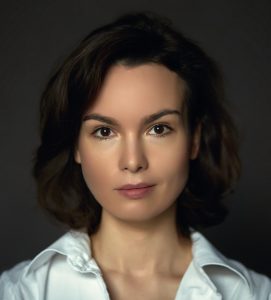 |
Alexandra Konoplyanik (Russia/UK) – MSc in Philosophy & Public Policy, practical philosopher, philosophy teacher and critical thinking trainer working in education, business and community. She is an accredited specialist philosophy facilitator with The Philosophy Foundation (UK). She is a visiting philosophy teacher at LETOVO School and RANEPA Lyceum (Moscow). Professional responsibility of a philosophy practitioner (Presentation) Philosophical Practice (PP) resides somewhere between academic philosophy and psychological practices. Most contemporary academic philosophy has a clear objective of pursuing truth in a detached manner, constrained by the requirements of logic and academic rigor. Most contemporary professionalized psychological practices adhere to the wellspelled ethical protocols and limitations, while working towards an equally clear objective of helping the clients live better adjusted human lives, with less suffering. These different sets of objectives (truth or better life, on some definition) and respective ethical protocols clearly distinguish academic philosophy from practical psychology and allow both to be (at least in theory) exercised with the relevant sense of professional responsibility. What about PP? It resides somewhere in-between, and even if practiced as a professional service is typically at liberty to set its own goals, instrumental and ethical limitations (or lack of thereof), based on the judgment of each practitioner. It is the case in Russia and most Continental European countries. So, what could professional responsibility of a philosophy practitioner look like? Is it more like academic philosophy or like psychological counseling in its ultimate objectives? Is truth an intrinsic or an instrumental value in PP? What do PP practitioners owe their clients, if anything? Should PP professionals aim to answer these questions collectively or individually is good enough? Should any limitations or requirements be set in place as conditions to participate in PP professional associations? Space for worldwide collaboration: The Philosophical Practice Hub Project Philosophical Practice (PP), a rapidly growing field of professional activity, is internally diverse and currently highly fragmented. We believe the field would benefit from having an online place (equidistant from any particular PP method) offering a well-structured, user-friendly, dynamic overview/ map of the field, its subareas, main approaches, their similarities and differences. To meet this need, a group of practitioners (inspired by a workshop at ICPP2020) is launching the Philosophical Practice Hub Project (website) to serve a double purpose of (1) providing conveniently navigable, comparable information to aspiring and experienced PP practitioners, as well as to the prospective clients, and (2) fertilizing collaboration between practitioners and schools of PP. At ICPP2021 the PPHP team will be presenting the project, the prototype of the website and our current bird’s-eye view of the industry, inviting comments, suggestions and a number of forms of contribution to the project by members of the PP professional community. Key speakers: André L. Santos de Almeida (Brazil) Taisiya Kondratyeva (Russia) Alexandra Konoplyanik (Russia/UK) |
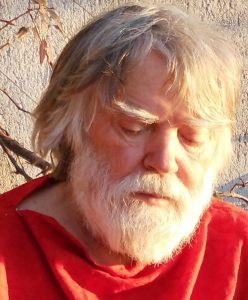 |
Mike Roth (Germany) – PhD, Konstanz University / Sinn Praxis Bodensee, co-organizer of the 14th ICPP Philosophical Practice 6 (2019), Konstanz; PHILOSOPHIERE! (Roth / Hein, eds.); The SPECIAL HERZEN Edition 6.1 – interactive READER 2020 (Book Presentation) Well–being (Bulatović) Practice & Counseling (Penner) Doing philosophy together (Roth & Mok-Wendt) Seeing and Interpretation ( Horne & Roth) Philo Ritual (Hofmann) PhiloDrama (Mok-Wendt / Roth / Penner) The Liguria Retreat (Roth) The I. Brando Retreat (Roth & Penner) The III. Brando Retreat: Turning Wheel (Roth) PhiloDrama: Greta acts (Schreiber/Mok-W./Roth /Zavala) Socratic walk (Zoran Kojčić) INTERACTIVITITY of this READER (Egon Hein) Doing philosophy together: narrative philosophy (Michael Hampe), fictional practitioners (Leon de Haas) & philodrama (Workshop) Narrative Philosophy is a relatively young new branch on the old tree of philosophical literature. It combines literary traits with written philosophy. I will contrast works of Michael Hampe 2020, 2008 and Wolfram Eilenberger 2020, 2018 and discuss aspects of making use of these books in philosophical practice. For the perspective of bibliotherapy cf. Doing philosophy together, Roth & Mok-Wendt, thanks to Ran Lahav and Willi Fillinger. As to philodrama see the video of my workshop at last year’s ICPP. A stepping stone is “Reading in distributed roles” (several voices) of a narrative philosophy text like Michael Hampe, Wilderness-Soul-Nothing(ness) – Die Wildnis – Die Seele – Das Nichts in a setting of philosophical practice. I am asking Regina Penner to help simulating this last format with me in the workshop. A way to make use of Eilenbergers presentation of 4 great figures in the philosophy of the 20th century (1933-1943) Hannah Arendt – Simone de Beauvoir – Ayn Rand – Simone Weil could be in formats inspired by Leon de Haas 2020, trying to create them as fictional philosophical practitioners. |
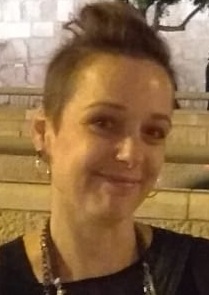 |
Maya Levanon (Israel) – PhD, Beit Berl College (Informal Education Department), Visiting Lecturer at Ludwigsburg Teacher University (Germany), National Louis University (USA), Montclair State University (USA) (Philosophy for children, department of educational foundation). Philosophical Guidance for the Reflective Psychonaut (Lecture) As psychedelics doing their way back to academic research, supervised therapeutic practices and public discussion, new questions and needs arise, one of them is what I identify as the need for a philosophical guidance, during a psychedelic intentional journey, reflective dialogue after the journey, and in the realm of micro-dosing. Within the context of a psychedelic journey, while we find guided, supervised therapy to work with PSTD patients, others, who do not necessarily suffer from a diagnosed mental illness, do enter the journey with an intentional purpose of growth, even transformation, can also benefit from working with a person who will enable them to find their authentic self through questions and deep, caring yet critical reflection. The typical psychonaut who enters the journey not with the local intention of “having fun” but rather with the courageous intention of remembering (and sometimes finding for the first time) her meaningful purpose in life, the one that echoes her true self while following her true values, will indeed get a glimpse into all that, the question many face though, is what happens to that glimpse once the journey seems to end? Can we refer to this end as the actual beginning of the real work? This is where the philosophical guide enters. Through this very door, of no fear but courage, courage to peel off the mask, the social persona we worked so hard to glue to our inner self, the courage to enter our hidden consciousness and face what is in there. The philosopher will approach the psychonaut’s insights and questions not as neurosis or momentarily insanity, but rather as true philosophical concerns: time and space, self and consciousness, authentic feelings and socialization and so on. While during the journey (“trip”) psychonauts can experience extreme angst, they usually also experience an extreme sense of joy derived from a series of deeper insights related to one’s deeper sense of life, as an individual and as an entity that is part of something much larger and benevolent. In fact, many report that their psychedelic experience/s were the most meaningful experience they had. But as a philosopher of education I can also argue that not only that not all experiences are equally beneficial for our development, even the experiences we do find extremely meaningful, if we do not do anything with them, they tend to fade. The metaphor I like to use for it is the one of a syrup: the first dose you mix with water is delicious, the more you dilute it, its original taste becomes dull. For the experience to remain meaningful in the sense that it has a lasting effect on our life, we must anchor it, and we do that through understanding it and later implement it on different life aspects. A philosopher is trained exactly for that: connecting with the experience, and make a sense out of it, so it can be useful in a trustworthy way. Reflective art journal (Workshop) In this workshop we create our first page in an art-journal: a format that combines philosophical reflections over a topic, concept or a question of value, followed by a creative activity that is taken from the art world: collage of words and shapes, ideas and colors. The workshop end with shared discussion over the artifacts created throughout the workshop that serves as a text for an ongoing community of philosophical creators. As philosopher we investigate concept and inquire ideas, we raise questions and take the journey to find some answers. But what if we try to do that without the read and written word? What if we try to communicate our philosophical mental structure using other medium? Can we approach concept, theories and ideas in a verbally limited way, preferring images, shapes and color? The Conscious Stylist, a Philosophical Guide in age of Instagram (Presentation) Fashion is not only about buying cloths and post selfies on Instagram. It is first about creativity, communication and identity. Fashion enables us to create and communicate our complex identity; it invites us to make active choices, communicating, practice creativity, and act as an agent of change in the world. With that said the fashion world confronts many of us with values and practices that go against our values as individuals. The beginning of a change start with educating people, giving them the fact about the mal practices of the industry and then brining people to believe that despite the fact we no longer perceived as citizens but rather as consumers, even as such, and perhaps especially as such, we can vote with our credit card! And so after learning the facts about this industry from a social and ecological perspectives, following the Pragmatists tradition – to provide, if not a solution, then an alternative – I examine some of the practices we can all, including “fashionistas” take to make a change, to be an active agent. Within this conversation, I raise the important value-based question: Can a stylist serve as a philosophical counselor? I argue that not only that she can, she must! While many stylists focus on “trends” and “sales,” this stylist offers a new outlook and raises questions that I identify as critically philosophical, questions from the realm of ethics and aesthetic, identity and value, agency and passivity. |
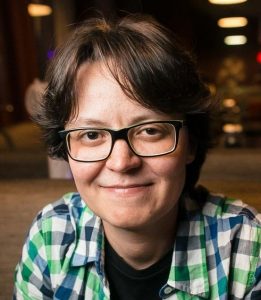 |
Yana Makakenko (Russia) – Candidate of Philosophy, Associate Professor of the Department of Social Philosophy of the Ural Federal University, co-organizer and permanent moderator of Death café (Yekaterinburg), certified therapist of Rational-emotional-behavioral therapy. How can we talk about death? (Workshop) Workshop for specialists working in the field of “man-man” (psychologists, psychotherapists, social workers, teachers), as well as for everyone interested in how to learn how to work with the experiences associated with death and dying, to find ways to comprehend this phenomenon . This is a training from the author’s program “Death and Immortality in the Circle of Human Life, Being and Existence”, which was implemented for mediators at the 5th Industrial Biennale of Contemporary Art in August 2019. An important task of this program was the ability of the participants to “be” with the theme of death and talk about death as ecologically as possible. Workshop developed in the format conversational practice and exercises – in pairs, small groups and individually. During the workshop, participants are given the opportunity to learn how to work with emotions associated with death and dying, to consciously reflect the reactions that have appeared, and also to talk about death with themselves, the other, the world as a whole, and at the same time remain themselves. |
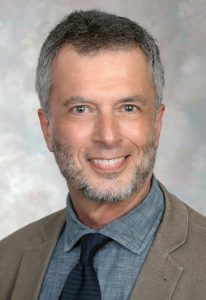 |
Jon Borowicz (USA) – PhD, Professor of Philosophy at the Milwaukee School of Engineering. He established a practice, Therien, in Cedarburg, Wisconsin in the Late ‘90s. Since roughly 2010, he has concentrated his work in philosophical practice in his courses in professional ethics at the Milwaukee School of Engineering that work evolving from neo-Socratic Dialogue. Philosophical Practice as a Re-imagined Cynicism (Lecture) Socrates and Diogenes can be understood as having shared the principle aim of provoking thinking, and particularly in Diogenes’ case, of subverting the thoughtless possession of conventional beliefs and values. But in whom? With the advantage of distance on Socrates’ example, Diogenes’ audience can be understood not to have been his immediate observers, whom he mainly shocked and disgusted, but those who heard or read of his antics. The chreia was a succinct philosophical form developed by the followers of Socrates initially to record what he said and did. Diogenes would have been well-acquainted with the chreia. Here is an example: When Diogenes was at a dinner party, the diners called him, “You dog,” and threw bones to him, as this is what people do to dogs. He in turn, as he left, pissed on the diners from behind, to show that this too went with being a dog. Diogenes understood that what shocked in its immediate experience could be thought-provoking in its retelling and that in doing so he could reach a far larger audience. Contemporary practical philosophers are in the position of Diogenes’ followers who captured his performances in chreiae. Academic philosophers are in a position to disturb their students in the realization that they are thoughtless. Universities are in a position to employ practical philosophers to facilitate an ethical discourse based on the chreia to provoke thinking and cultivate moral judgment. The author’s experience using an asynchronous collaboration platform to this end will be described and demonstrated. |
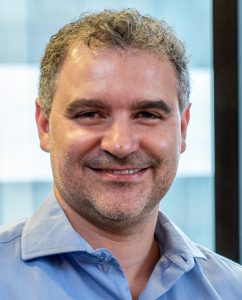 |
André Almeida (Brazil) – Philosophy PhD, Professor of Philosophy, Fundação Dom Cabral, Associate Tutor in Philosophy, at University of Sussex, England (2013-2018). Philosophical Practice as a Way of Dealing with Internal Ethical Conflicts in Business Contexts (Lecture) Internal ethical conflicts are common in the professional life of many executives in business settings. They may emerge from specific, unanticipated, events or may be inherent to the very professional activity of the executive. During my presentation I will: describe the kinds of situations that generate internal ethical conflicts in business settings; explain the kinds of problems (both for the individual and for the company) which emerge if those are not properly addressed; justify why Philosophy in general and Philosophical Practice specifically is the most appropriate means for addressing those conflicts; and present a model for using Philosophical Practice as an effective tool for dealing with those internal conflicts. Executives are constantly faced with hard choices. Sometimes those choices oppose the economic performance of the company and an ethical outcome. Sometimes they involve straightforward ethical dilemmas. Examples of specific events: having to dismiss a considerable number of employees; closing a factory; working in a company that is involved in corruption scandals; and focusing on the professional life to the detriment of one’s family. Examples of internal conflicts that are inherent to the professional activity: working in industries such as alcohol or tabaco; and working in the sustainability division of a mining company. The model I will propose for dealing with these internal conflicts involve group Philosophical Practice sessions intercalated with occasional individual sessions. The aim of the work is not only to elaborate the internal conflicts, but also to use them as “fuel” for the healthy development of the individual. Philosophical Practice and the Decision-Making of Business Executives (Lecture) A key capacity for a business executive is decision-making. At the same time that making decisions is among the most present tasks in the daily professional life of executives, the decisions they make have many times considerable impact. Such capacity becomes increasingly important as one climbs up the ladder of the hierarchy of a business. The greater the decision-making power of an executive the greater the impact their decisions will tend to have. Though that is an essential capacity in the professional context of executives, developing their capacity to make better decisions in general plays no role (surprisingly) in the formal process of improving themselves as an executive. In this paper I offer the view that Philosophical Practice is well positioned to give a great contribution in terms of this issue. Philosophical Practice aims at providing a practical contribution to people’s lives. In as much as executives are people there is naturally a contribution to be given to such a public from a personal point of view. The sort of contribution proposed in this paper certainly includes this kind of personal added value, and yet it also transcends it. That is so because of the indirect contribution given to society as a whole. It would be difficult to overstate the degree of impact which corporations have in the world habituated by us. For instance, out of the 100 largest economies in the world, 71 are corporations. As the paper will among other things argue for the view that one important sense in which the decision-making capacity of executives can be improved is by properly acknowledging the morally relevant features of situations (as opposed to tending to ignore certain kinds of relevant features) there is a clear sense in which such improvement would lead to the betterment of society as a whole. In the paper I argue for the view that Philosophy is well positioned to give such a relevant contribution. Extremely useful principles in terms of a higher quality decision-making process can be derived from traditional philosophical fields of study such as logic, critical thinking and ethics. I also argue for the view that Philosophical Practice is particularly well positioned to supporting executives in developing such capacity. What is required is not a merely theoretical understanding of concepts but rather a concrete development of a capacity. In as much that is the case Philosophical Practice is a kind of approach which would allow the Practitioner to derive a conceptual basis form the above-mentioned theoretical areas of Philosophy while, at the same time, providing applicable instruments and approaches that could be conducive to the practical development of the client’s decision-making capacity. The paper is finished by a description of how a Philosophical Practitioner can in practice promote the development of the relevant capacity. |
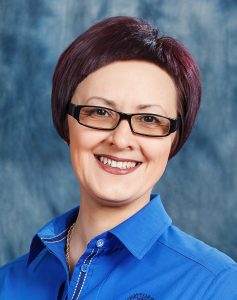 |
Olga Ivanova (Russia) – Doctor of Philosophy, Associate Professor of South Ural State Humanitarian Pedagogical University Philosophical consulting as a logomanagement tool in an organization (Interactive presentation in the TED style) Logomanagement is management based on common sense – rational and logical basis of values and management decisions. Logomanagement takes into account the possible impact of the employee’s personal sense on his or her attitude to work, the necessity of meaningful work and the employee’s awareness of his or her own contribution to the organization’s activity, the employee’s understanding of the sense of interaction with colleagues at work, recognition of the value of interaction, the confirmation of employee engagement in his attitude to labor. Philosophical consulting is an intelligent HRM service that integrates the tools of philosophical practice and management. The skills of critical thinking are methodologically used in analytical and design management tools. For example, when diagnosing the root causes of problems in the form of a fish bone diagram, SWOT analysis, brainstorming techniques and yellow box techniques, ensuring a continuous productive relationship between thinking and practice and improving decision-making in the chain: clarity of thinking (in language) – behavior – organizational effect. Philosophical consulting is practiced in the community in strategic dialogue aimed at involving different stakeholders in the rational and emotional development of ideas. As a logomanagement tool, philosophical consulting enables the creation of an environment that encourages and supports reflection. Namely: to understand and recognize the presence of many factors and the high rate of changes affecting the management decision, to take into account and clarify the uncertainty of the actual situation, when important information is not defined, future results are not clear and the sense of events are ambiguous. This intellectual service is relevant in VUCA-world. |